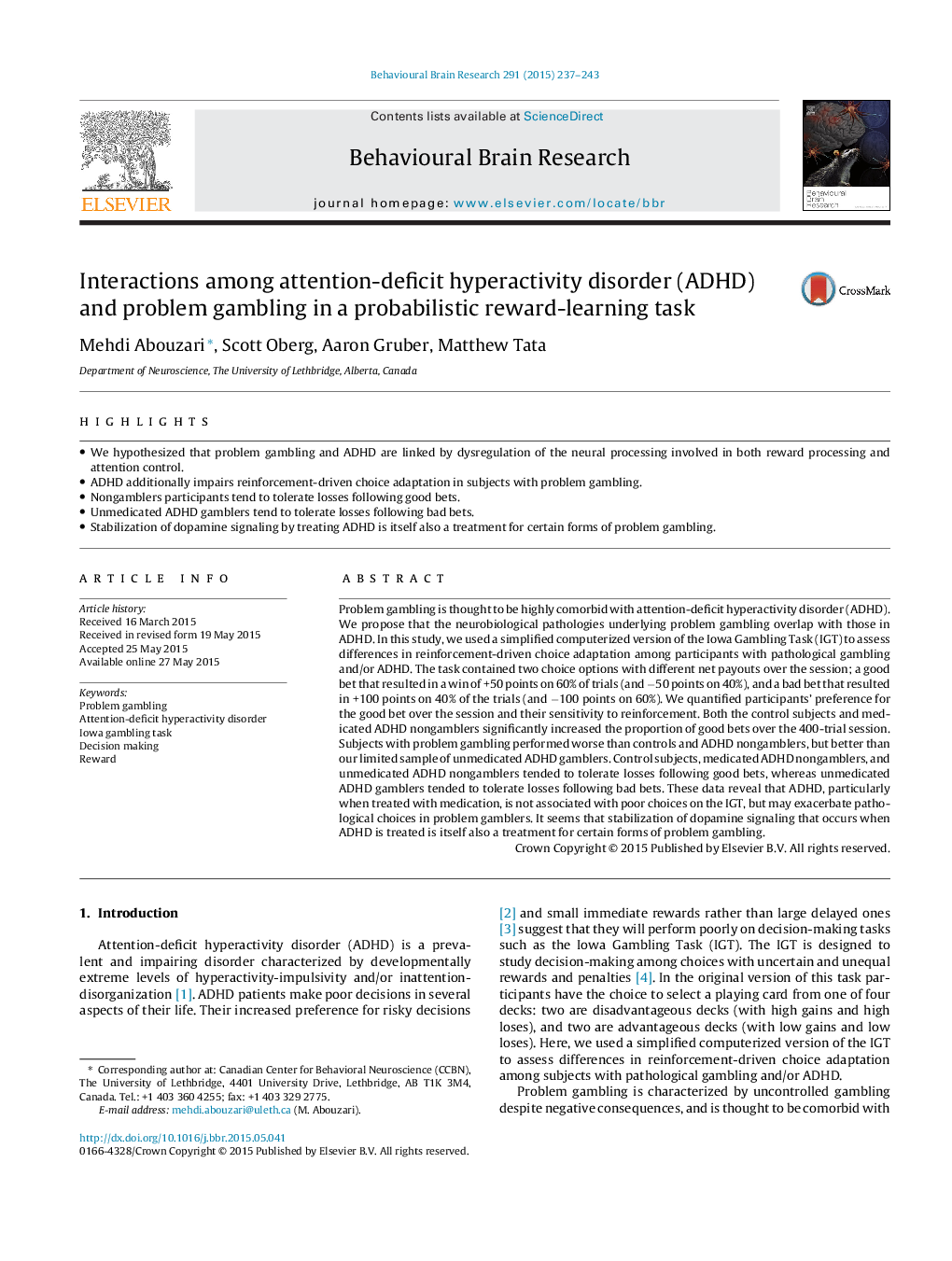| Article ID | Journal | Published Year | Pages | File Type |
|---|---|---|---|---|
| 4312393 | Behavioural Brain Research | 2015 | 7 Pages |
•We hypothesized that problem gambling and ADHD are linked by dysregulation of the neural processing involved in both reward processing and attention control.•ADHD additionally impairs reinforcement-driven choice adaptation in subjects with problem gambling.•Nongamblers participants tend to tolerate losses following good bets.•Unmedicated ADHD gamblers tend to tolerate losses following bad bets.•Stabilization of dopamine signaling by treating ADHD is itself also a treatment for certain forms of problem gambling.
Problem gambling is thought to be highly comorbid with attention-deficit hyperactivity disorder (ADHD). We propose that the neurobiological pathologies underlying problem gambling overlap with those in ADHD. In this study, we used a simplified computerized version of the Iowa Gambling Task (IGT) to assess differences in reinforcement-driven choice adaptation among participants with pathological gambling and/or ADHD. The task contained two choice options with different net payouts over the session; a good bet that resulted in a win of +50 points on 60% of trials (and −50 points on 40%), and a bad bet that resulted in +100 points on 40% of the trials (and −100 points on 60%). We quantified participants’ preference for the good bet over the session and their sensitivity to reinforcement. Both the control subjects and medicated ADHD nongamblers significantly increased the proportion of good bets over the 400-trial session. Subjects with problem gambling performed worse than controls and ADHD nongamblers, but better than our limited sample of unmedicated ADHD gamblers. Control subjects, medicated ADHD nongamblers, and unmedicated ADHD nongamblers tended to tolerate losses following good bets, whereas unmedicated ADHD gamblers tended to tolerate losses following bad bets. These data reveal that ADHD, particularly when treated with medication, is not associated with poor choices on the IGT, but may exacerbate pathological choices in problem gamblers. It seems that stabilization of dopamine signaling that occurs when ADHD is treated is itself also a treatment for certain forms of problem gambling.
